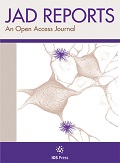Authors: Turner, Michael | Belli, Antonio | Castellani, Rudolph J.
Article Type:
Research Article
Abstract:
Background: Cumulative effects of traumatic brain injury is of increasing concern, especially with respect to its role in the etiology and pathogenesis of neurodegenerative diseases, such as Alzheimer’s disease, Parkinson’s disease, and amyotrophic lateral sclerosis. Objective: Compare regional brain volume and connectivity between athletes with a history of concussion and controls. Methods: We evaluated whole-brain volumetric effects with Bayesian regression models and functional connectivity with network-based statistics, in 125 retired athletes (a mean of 11 reported concussions) and 36 matched controls. Results: Brain regions significantly lower in volume in the concussed group included the
…middle frontal gyrus, hippocampus, supramarginal gyrus, temporal pole, and inferior frontal gyrus. Conversely, brain regions significantly larger included the hippocampal and collateral sulcus, middle occipital gyrus, medial orbital gyrus, caudate nucleus, lateral orbital gyrus, and medial postcentral gyrus. Functional connectivity analyses revealed increased edge strength, most marked in motor domains. Numerous edges of this network strengthened in athletes were significantly weakened with concussion. Aligned to meta-analytic neuroimaging data, the observed changes suggest functional enhancement within the motor, sensory, coordination, balance, and visual processing domains in athletes, attenuated by concussive head injury with a negative impact on memory and language. Conclusions: These findings suggest that engagement in sport may benefit the brain across numerous domains, but also highlights the potentially damaging effects of concussive head injury. Future studies with longitudinal cohorts including autopsy examination are needed to determine whether the latter reflects tissue loss from brain shearing, or the onset of a progressive Alzheimer’s disease like proteinopathy.
Show more
Keywords: Alzheimer’s disease, brain imaging, brain structure and function, concussion, neurodegeneration, sport, traumatic brain injury
DOI: 10.3233/ADR-240021
Citation: Journal of Alzheimer's Disease Reports,
vol. 8, no. 1, pp. 501-516, 2024





